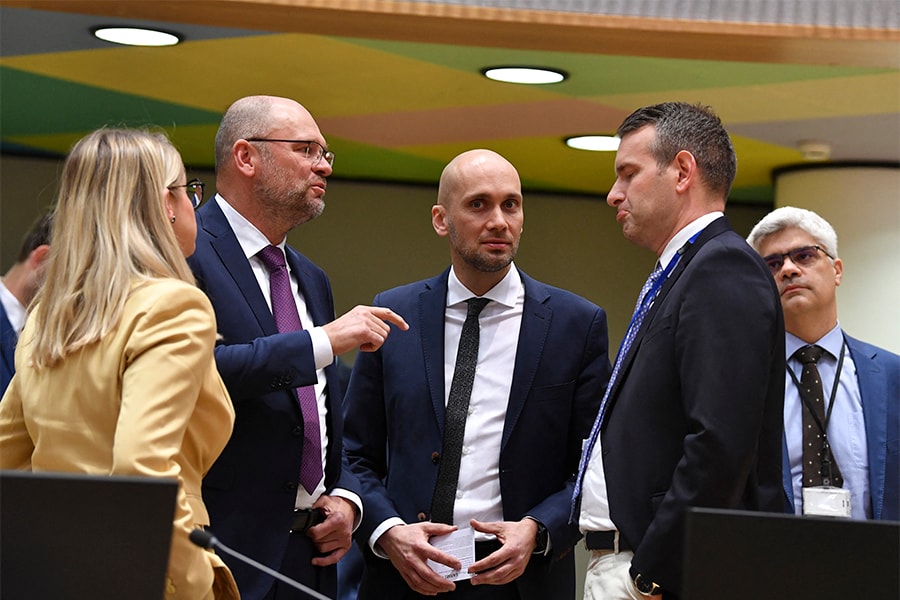
EU members seek opt-outs from Russian oil embargo
Slovakia, which like Hungary is almost 100 percent dependent for fuel on Russian crude coming through the Druzbha pipeline, has said it will need several years to phase out
 Slovakia Minister of Economy Richard Sulik (L) talks with Hungary State Secretary for Development of Circular Economy and for Energy and Climate Policy, the ministry of Innovation and Technology Attila Steiner (R) during the Special European Energy Ministers Council on Russian gas and petrol crisis at the EU headquarters in Brussels on May 2, 2022. (Credit: JOHN THYS / AFP)
Slovakia Minister of Economy Richard Sulik (L) talks with Hungary State Secretary for Development of Circular Economy and for Energy and Climate Policy, the ministry of Innovation and Technology Attila Steiner (R) during the Special European Energy Ministers Council on Russian gas and petrol crisis at the EU headquarters in Brussels on May 2, 2022. (Credit: JOHN THYS / AFP)
Brussels, Belgium: EU officials late Tuesday handed over a draft plan to member states on a new package of sanctions to punish Russia for its invasion of Ukraine, but some members are jockeying to opt out of an oil embargo.
Several EU officials and European diplomats in Brussels told AFP there were divisions over the plan.
It was only adopted late at night due to the stance of one of the member states.
Ambassadors from the 27 European Union countries will meet on Wednesday to give the plan a once-over, and it will need unanimous approval before going into effect.
The commission's proposal would phase in a ban on oil imports from Russia over six to eight months, with Hungary and Slovakia allowed to take a few months longer, EU officials told AFP.







